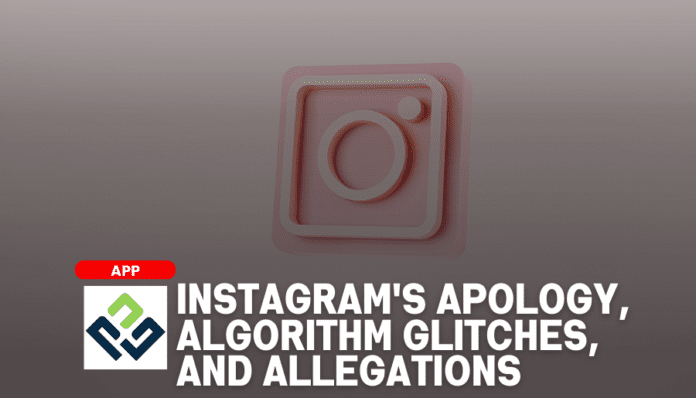In the dynamic world of social media, Instagram has recently found itself at the center of a storm, issuing an apology for a controversial incident that involved the inadvertent association of the word “terrorist” with some Instagram users who proudly identified as Palestinian. In this article, we delve into the details of this incident, its background, and the broader context of allegations related to the suppression of pro-Palestinian content on the platform. We will also explore Instagram’s response to these issues and the impact they have had on users and content creators.
The Controversy
The controversy that sparked this apology began when some Instagram users’ profile bios, who identified as Palestinian, featured the term “Palestinian” in English, the Palestinian flag emoji, and the Arabic phrase “alhamdulillah.” However, the Arabic-to-English translation of this phrase resulted in an alarming statement, reading, “Praise be to God, Palestinian terrorists are fighting for their freedom.”
A vigilant TikTok user, @khanman1996, not of Palestinian descent himself but informed by a Palestinian friend, brought this issue to light. He discovered that various combinations of words still led to the translation mentioning the word “terrorist.” This revelation raised concerns and questions about Instagram’s translation algorithms and content moderation policies.
Instagram’s Response
Instagram, a subsidiary of Meta, acknowledged the issue and promptly issued an apology. The company stated that the inclusion of the word “terrorist” in these translations was an unintentional error and not a reflection of their content policies. Instagram assured users that they are committed to addressing this issue to prevent such inadvertent associations in the future.
Meta, the parent company of Instagram, also found itself under scrutiny for allegations of suppressing content supporting Palestinians during the Israel-Gaza conflict. Some users reported instances of being “shadow-banned” on the platform, a practice where their posts do not appear in other users’ feeds, leading to reduced visibility and reach for their content. Posts related to the Israel-Gaza conflict, they claimed, received fewer views, and their accounts became less discoverable through search.
However, Meta defended its actions, stating that any reduction in reach and visibility was related to a bug affecting Stories, not a deliberate attempt to suppress pro-Palestinian content. They emphasized that new measures were implemented during the Israel-Hamas conflict to address harmful content and ensure the safety of all users.
A Broader Context
This incident is not the first time Instagram has faced allegations of suppressing pro-Palestinian content. In May 2021, the platform was accused of removing content related to the crisis, further fueling concerns among users advocating for Palestinian rights.
Shadow banning has affected prominent users as well. Figures like Bella Hadid and Pakistani writer Fatima Bhutto reported being shadow-banned for posting pro-Palestinian content. This practice has raised questions about the transparency and consistency of Instagram’s content moderation policies.
A Global Outage
In addition to these controversies, Meta also recently experienced a global outage of its Facebook Live video service. While this incident might not be directly related to the suppression allegations, it underscores the challenges that large tech companies face in maintaining uninterrupted service for their billions of users.
Instagram Controversy Stats
| Aspect of Controversy | Details |
|---|---|
| Translation Issue | “Praise be to God, Palestinian terrorists are fighting for their freedom” |
| Controversial TikTok User | @khanman1996 |
| Shadow Banning Allegations | Reduced reach and visibility for pro-Palestinian content |
| Global Outage | Facebook Live video service outage |
| Previous Suppression Allegations | May 2021: Removal of content related to the Palestinian crisis |
| Prominent Users Affected by Shadow Ban | Bella Hadid, Fatima Bhutto |
Conclusion
Instagram’s recent apology for the translation issue and the allegations of suppressing pro-Palestinian content have highlighted the platform’s responsibility in ensuring transparency, fairness, and consistency in content moderation. Users and content creators are looking for a more reliable and accountable social media environment, and the actions taken by Instagram and Meta will be closely monitored. It remains to be seen how these controversies will shape the platform’s policies and users’ trust in the future.

